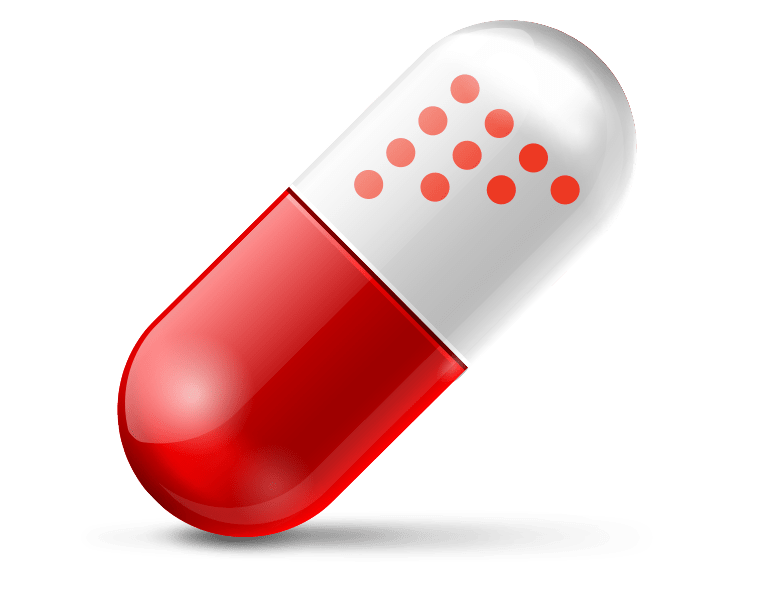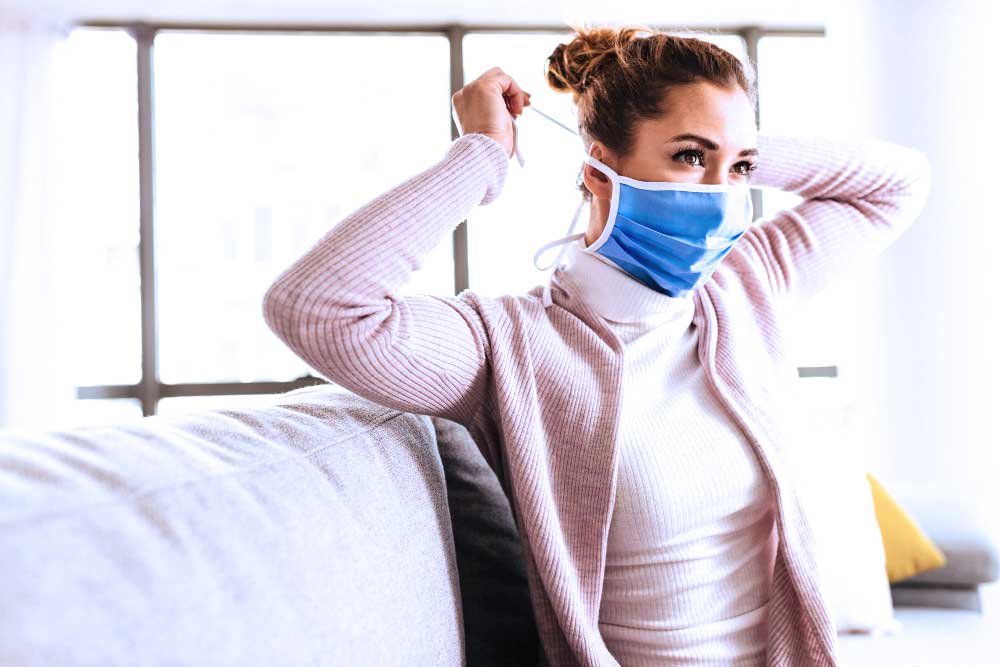Committed to developing treatments
for severe inflammatory and
fibrotic lung diseases.

Cystic fibrosis
A rare genetic disease with unaddressed lung inflammation.
Cystic fibrosis (CF) is the most common fatal hereditary disease among Caucasians, affecting an estimated 83,000 people worldwide. Mutant cystic fibrosis transmembrane regulator (CFTR) results in impaired mucocilliary clearance in the airways, exaggerated AA-mediated inflammation and inadequate pro-resolving DHA response, leading to chronic infection, exaggerated lung inflammation and local lung tissue destruction over time.
Existing data suggest that LAU-7b has a therapeutic approach that appears to be complementary to CFTR modulators. LAU-7b pro-resolving effect has the potential to correct the DHA/AA imbalance and control inflammation without interfering with the natural defenses. LAU-7b was also shown to rebalance certain long-chain sphingolipids (ceramides) involved in the CFTR protein recruitment, aggregation and confinement inside the membrane lipid rafts, in response to cellular stress during inflammation.

APPLAUD Phase 2 study in adult patients with cystic fibrosis
APPLAUD is a placebo-controlled phase 2 clinical study of the efficacy and safety of LAU-7b in the treatment of cystic fibrosis in adults, aiming to evaluate LAU-7b’s effect on the resolution of inflammation and preservation of lung function. A total of 166 patients were enrolled at hospital sites across Canada, the US and Australia, for a treatment duration of 6 months. The study measures the lung function at 24 weeks, pulmonary exacerbations, quality of life, Pseudomonas aeruginosa infection level, systemic inflammatory and lipidomic biomarkers.
More details about the study can be found on www.clinicaltrials.gov (#NCT03265288).
COVID-19
A global health crisis requiring effective treatments.
COVID-19 is an acute respiratory disease borne from infection with SARS-CoV-2 coronavirus and rapidly qualified as a pandemic. While most patients are thought to have a favorable prognosis, certain patients may have worse outcomes with hyperinflammation in the lungs that may require mechanical ventilation. With viral mutations increasing uncertainty around coronavirus persistence and seasonality, there is an urgent need to develop efficacious COVID-19 treatments.

What is the difference between a COVID-19 vaccine and a COVID-19 treatment?
- Vaccines are administered before you get the virus to prevent the infection from developing. They are used to “train” your immune system how to defend against COVID-19, by imitating the infection.
- Treatments, on the other hand, are usually meant to treat the COVID-19 disease after the infection develops in your body, helping patients sickened by the virus to survive and recover more quickly.
Proposed mode of action
on COVID-19
LAU-7b: potential for dual antiviral and inflammation-controlling mechanism in COVID-19
Membrane lipids play a central role in coronavirus infection, and are needed for virus fusion to the plasma membrane when they enter or are released from the cell. Viruses also attack the lipid synthesis (lipogenesis) and signal the host cells to produce lipids for their envelopes and also to hide from the immune system.
LAU-7b decreases host cell membrane lipids fluidity, inhibits de-novo cell lipogenesis, and modulates phospholipid signaling promoting resolution of inflammation. Due to its host-directed mutation-agnostic mechanism, LAU-7b utility could span across future variants, as demonstrated in-vitro against multiple SARS-CoV-2 strains and MERS-CoV.
LAU-7b inflammation-controlling (pro-resolution) properties also involve secondary signaling pathways such as ERK1/2, NF-kB and cPLA2, all of which known to have a role in virus immune evasion.
LAU-7b
has multiple potential advantages in the treatment of COVID-19.
Once-a-day oral drug with potential for dual antiviral and inflammation-controlling effects.
Host-directed antiviral, potential to be mutation-agnostic against variants, and complementary to all virus-specific antivirals.

Pro-resolving effect on inflammation, not expected to be immunosuppressive.
Potential to be used in both the viral and inflammation phases, in the hospital or at-home, on top of standard of care.
References:
Hayashi Y. et al, 2021. Journal of virology. https://doi.org/10.1128/JVI.00807-21
Orienti I. et al, 2020. Int. J. Mol. Sci. 2020, 21, 3812; https://doi.org/10.3390/ijms21113812

RESOLUTION Phase 2/3 study with LAU-7b in hospitalized COVID-19 patients
RESOLUTION is a placebo-controlled Phase 2/3 study of oral LAU-7b, administered once-a-day for 14 days on top of standard of care, in hospitalized COVID-19 patients at risk of developing pulmonary complications. Results from RESOLUTION Phase 2 pilot portion showed 100% reduction in the risk of progression to mechanical ventilation and death in LAU-7b-treated hospitalized moderate-to-severe COVID-19 patients, relative to placebo. Both study arms were highly comparable in terms of mean age, number of comorbidities and concomitant medications. Patients on LAU-7b tended to recover more rapidly and leave hospital faster. LAU-7b was well-tolerated, with safety comparable to placebo. Following the positive results in the Phase 2 pilot study, the confirmatory Phase 3 portion was triggered, focusing on moderate-to-severe COVID-19 and using the “Proportion of patients requiring mechanical ventilation and/or death by Day 60” as the primary efficacy endpoint.
More details about the study can be found on www.clinicaltrials.gov (#NCT04417257).

ESSOR Phase 2/3 study with LAU-7b in patients with Long COVID
ESSOR is a randomized, placebo-controlled, Phase 2/3 clinical trial evaluating the efficacy and safety of LAU-7b as a potential treatment for patients with Long COVID, aiming to reduce the overall disease burden on performance of daily activities. The trial builds on the known efficacy and safety profile of LAU-7b in hospitalized adults with COVID-19, as well as on the preclinical evidence of LAU-7b as a host-directed antiviral with inflammation-controlling effects in several preclinical models of respiratory and neurological inflammation. The ESSOR Phase 2 portion will enroll 204 adults with moderate to severe Long COVID, randomized in three (3) study arms, each receiving the study medication for three (3) treatment cycles for a total duration of 12 weeks, on top of standard of care. Each treatment cycle will consist of 14 consecutive days of once-a-day oral study medication self-administered at home, followed by a 14-day drug-free period. The primary endpoint will measure the overall functional health status evaluated with the physical component score (PCS) of the SF-36 questionnaire at Week 12 compared to baseline. Secondary endpoints include evaluation of symptoms and their impact on daily activities using various tests such as the Patient Global Impression of Change (PGI-C), FACIT-Fatigue scale, the DePaul Post-Exertional Malaise Questionnaire, the EQ-5D-5L quality of life questionnaire, and Likert score.
More details about the ESSOR clinical trial can be found on www.clinicaltrials.gov, using Identifier NCT05999435.